- Home
- Russell Blake
The Day After Never (Book 1): Blood Honor Page 14
The Day After Never (Book 1): Blood Honor Read online
Page 14
When the power had gone out all over the country, and it had become obvious that society was in flux, he’d acted decisively when most others were either cowering in fear or bickering over peanuts. He was utterly fearless and was possessed of a powerful prison-yard physique from countless hours of weightlifting, which along with his above-average intelligence had made him a natural leader in a time of upheaval. Modeling his approach after his idol Genghis Khan, he’d struck hard, eliminated threats to his power, absorbed possible allies and rewarded them for their allegiance, and consolidated territory under his flag.
The servant returned with a fresh bottle of the añejo rum Magnus reserved for his own consumption and poured several inches into his goblet before slinking away to await his master’s next order. Magnus took a long, appreciative sip and smacked his lips.
Magnus had chosen the Eye of Providence for his signature, largely due to its occult legacy and its symbolic importance to the Illuminati, which he’d studied with fascination while behind bars, and which he was convinced was the shadow organization that ran the world, pulling the strings of puppet governments and front groups while always remaining in the background. Magnus had grown obsessed with them, convinced that the trick to claiming a seat at the table of power once a national government was formed was to prove his worth and loyalty to the group, whom he believed responsible for the super flu and resultant economic Armageddon. He had secured forbidden tomes that purported to explain the true significance of the Georgia Guide Stones, the Jesuit “black pope” and the Vatican, Satanic secret societies that operated in plain sight, modern neo-Nazism and global fascist totalitarianism, and a plethora of other arcane and occult interests he believed influenced all events of note.
His men were swigging moonshine and rum, finishing up their daily status reports, anticipating the executions and the debauchery that would follow with the female slaves, many of them barely teenagers, hand-selected for defilement. The current topic was the Lubbock laboratory – one of Whitely’s projects that had gone unexpectedly bad, setting him on edge for two weeks as his future with Magnus, and his life, hung in the balance.
“Security should have been tighter,” spat Lorne, one of Whitely’s rivals. “If I’d been running things there, this would never have happened.”
“If you’d been running things there, you’d still have been trying to figure out how to boil water,” Whitely countered.
The gathering laughed at the barbs being exchanged, in much the same way Romans might have chuckled as gladiators battled to the death in the coliseum. Magnus took a deep draught of his rum and touched the tattooed eye in the center of his forehead, the pyramid below it extending to his jawline on either side of his face. “I’m tiring of excuses,” he said in a low rumble, and the men nodded as though he’d dispensed profound wisdom.
And aide, also covered with prison ink, entered and approached Magnus. The man whispered in his ear and the warlord’s face twisted with rage. He rose from his throne, as he referred to the symbolic seat of power he’d set up on the church’s altar platform, and stormed after the aide, signaling with a curt gesture that the meeting was over.
In one of the rooms below, a nervous man waited, his body language apprehensive, his clothes covered with road dust. Magnus entered and plopped down on a divan. “What happened?”
“I wanted to tell you in person. We spoke with Garret on the radio. It was too sensitive to transmit to you on open air, so I’ve ridden all day to report his progress. He has the woman – but not the child.”
“What good is that?” Magnus thundered. “That’s not a result! That’s a failure!”
“He says he’s close. He hopes to have a resolution shortly.”
Magnus eyed the messenger with an evil glare. “Perhaps I sent the wrong man to coordinate things with the Locos.”
The messenger gave a dispassionate report of everything he’d been told. When he was finished, the warlord nodded. “My patience is running thin. Tell Garret that. Use those exact words. If I cannot rely on him to produce a success, he will be responsible for a failure. Tell him.”
The man nodded. “I will.”
“Fill your belly and drink till you drop. You can return to your duties tomorrow.”
“Thank you, Magnus.”
The warlord waved him away. “Leave me. I need to think.”
The messenger hurried away. Magnus stared at the religious icons that decorated the walls, considering the new information he’d received, and then abruptly rose and moved to the door. His bodyguards framed the entryway, Uzis in hand, and he grinned, gold incisors glittering fangs in the dim light.
“Time for the execution, boys. Let’s go watch justice be done!” he bellowed, and the men smiled – their boss was a man of extreme moods, and better a joyous Magnus preparing for the slaughter than an angry one, who could lash out violently at the slightest real or imagined slight. They followed the big man down the hall, overhead lights flickering from the uneven geothermal power, and up onto the roof, where an exhibition stage stood, surrounded by flaring torches. The condemned men, women, and children waited by its side in shackles.
A cheer went up from the assembled throng at the appearance of their leader, and Magnus raised a megaphone to his lips.
“What is the penalty for disobedience?” he cried.
“Death!” the crowd roared.
“What do we do to those who oppose us?”
“Kill them!” the assembly chanted.
“The time is now. The all-seeing eye has spoken, and the bringer of light will be appeased!”
An enthusiastic cry rose from the group as drummers pounded on their instruments in tight cadence. A prodigiously muscled man, naked except for a studded leather codpiece and a black hood, stepped onto the stage with a gleaming machete and held it overhead. The first victim, a young woman, screamed in terror as a pair of bare-chested guards dragged her onto the stage.
Magnus smiled inwardly at the spectacle and took his seat to watch the fun. The herd was easy to control, he thought. Bread and circuses, same as it had been for thousands of years. Nothing had changed – the masses still cried for slaughter, their history as hunters quickening the murderous blood in their veins now that the veneer of civility had been stripped away.
He, Magnus, was their new messiah, their maker of dreams, their Caesar.
And it was time to render unto him and pay tribute.
Chapter 25
Jax knew the way home, and he ambled along a trail until they arrived at a dilapidated industrial building no more than five hundred square feet, part of its front façade caved in and the grounds around it desiccated. Ruby hopped from the saddle and removed the bridle and saddle from the mule while Lucas helped Eve down and surveyed their surroundings, which were barely visible now that it was dark.
“Go ahead and unstrap your gear, Lucas,” Ruby said. “You won’t need your saddle tonight.”
“Where do I put it?” he asked, eyeing the building doubtfully.
“Just do it, and then I’ll lead you to my own personal piece of paradise.” She paused and patted Jax. “If your horse will come when you call him, we can just let them graze in this field. There’s a water trough over by that fencepost for them. Fed by a well.”
“That’ll work.” Lucas unbuckled Tango’s tack, and once freed from his trappings, the big horse followed Jax over to the water and drank. Lucas shouldered the saddle and saddlebags, and trailed Ruby and Eve into the building.
Inside, he could see that most of the windows had been broken out, and the cement floor was littered with glass shards, dusty debris, dead birds, and refuse.
“Uh, Ruby…” he started.
She shushed him. “Don’t worry. I’m only half mad.”
Ruby reached below one of the piles of trash and pulled. The floor rose, and Lucas could see that the mound of garbage was actually attached to the top of a wide hatch. An industrial white light blinked on below. She turned to him and smiled. “W
elcome to Casa Ruby.”
Lucas neared the opening and saw five-foot-wide metal stairs descending into the earth. With another doubtful glance at Ruby, he descended the steps, which were painted a faded gray and worn from decades of foot traffic. He continued down three stories, where he encountered a steel blast door. He waited there as Ruby resealed the hatch above and escorted Eve to where Lucas waited, and then pushed past him and unlocked the door with a key hanging from a chain around her neck.
“What is this place?” Lucas asked, his voice echoing in the concrete passageway.
“Old AT&T communications bunker. They built them during the Cold War. This is a relatively small one – only fifteen thousand square feet. They ranged all the way up to sixty. Hardened to withstand a nuclear strike and equipped with everything you can imagine, although I don’t use most of the gear because of power concerns.”
“Solar?” Lucas asked.
“Of course. I’ve got a decent array up on the roof, but you can’t see the panels because of the rim of the building, which is just as well. Nobody has any idea I live here. Which is exactly how I like it.”
Ruby pulled the thick steel door wide and motioned for him to enter. Lucas took a cautious step inside the dark expanse, and Ruby reached around him and flipped a switch. Fluorescent lights illuminated along another, wider corridor.
“Cool,” Eve said.
Ruby shut the door and locked it, and then led them down the hall to another door. She repeated the unlocking ritual using the same key and stepped over the threshold, an impish smile on her wizened face. “Come on in and set your stuff down.”
She flicked on the lights in the room, and Lucas found himself looking at a large rectangular hall, easily forty by eighty, outfitted with throw rugs on the cement floor, overstuffed couches and easy chairs, an elaborate computer workstation midway along one wall, and colorful oil paintings on all the walls, along with stuffed birds whose eyes seemed to follow them as they entered.
“Wow,” Eve exclaimed, looking up at Lucas.
He nodded in agreement. “Yeah. Wow.”
Ruby switched the hall lights off and closed the door. “Only thing that drives me batty are the fluorescent main lights. I was getting ready to replace those when it all went paws up. I usually work with just the LED area lamps. The overheads are annoying. You mind if I shut them off?” She paused. “Lucas, you can put your gear over there.” She pointed at a spot near the door.
Lucas shook his head in wonder. “This is amazing. You own it?”
“Wasn’t all that expensive, believe it or not. But outfitting it sure was. Got five acres of surrounding land, no good for much but my herb gardens and for Jax to roam. Surrounded by chain-link fence that came with the deal. So did a generator, sewage pump, ten-thousand-gallon stainless steel water tank – the whole nine yards. But by the time I gutted it, fixed it up so it’s livable, furnished it, and got all the solar ironed out, I was into it another six figures, easy.” She shrugged. “If I’d known it was going to turn end times, I would have invested even more.”
“Ain’t that the truth.”
Ruby switched on two upright lamps and turned the overheads off. The room darkened considerably, and Eve looked up at the stuffed birds with a worried expression.
Ruby extended her hand to Eve. “Come on. Let me show you two around.”
The little girl took her hand with a shy smile, and Ruby led her to an open doorway. “This is the kitchen area. Mostly what I grow up top, but also some stews and curries, plus whatever I can trade for in town.” She stopped at the final word, a frown in place. “Those poor, poor people…”
Lucas lightly touched her shoulder to pull her out of it. She sighed in resignation and offered a pained smile.
“Anyhow, we have food,” she finished.
Lucas eyed the workstation. “And a radio?”
“Yep. Antenna looks like junk rebar up top – half finished. But it works like a champ.”
“No problems running the ventilation and refrigeration off solar?”
“No. I had the vent system modified so it’s a low-power-draw unit, and it only cycles three times – twice during the day, when it runs off the panels, and once at night. With just me here, it’s not like I use up all that much oxygen, but I figure it doesn’t hurt to keep the batteries and the pumps working out. I draw less than a quarter kilowatt per hour, averaged out, during the day, and even less at night. Of course, that spikes when the fans activate or a compressor kicks in, but I have the systems set so there’s no big jolt when they come on. More of a slow start.”
“What happens when the solar batteries finally go?” Lucas asked. “Nothing lasts forever.”
“Won’t be doing much at night,” Ruby answered with a small shrug. “That’s fine. I can charge smaller batteries during the day and read at night. I’m not up that late, so it shouldn’t change my busy lifestyle.”
Lucas had to chuckle at the older woman’s pluck. “As long as you keep the parties to a minimum.”
“Bathrooms and sleeping areas are over here,” Ruby said, leading them to the far end of the main room. “Four bedrooms, four baths. All big, too.”
When the tour was over, they sat on two of the sofas, Eve next to Ruby, and sipped lemonade made from one of the lemon trees on the property. Lucas was again struck by the little girl’s composure – a maturity far beyond her years. He leaned forward, set his drink on the coffee table, and eyed the older woman.
“Ruby, why buy this place? Don’t take that the wrong way. But it’s…unusual, isn’t it?”
“I worked on the West Coast most of my life, Lucas, writing software and, later, running coding teams. I made enough money from a startup I was involved with to where I didn’t really have to worry about much, but I never liked being around people a whole bunch.” She gestured at the art on the walls. “Never saw much reason to interact, you know? I’m happy painting or writing code or reading or working with my herbs. Anyway, one day, I was coming back from the market at night, and I got mugged getting out of my car. I wasn’t too badly hurt, but something snapped inside me, and I decided to get out of the city – get back to my roots, if you want to think about it like that.”
“I can see the appeal.”
“I grew up on a farm in South Dakota, so it wasn’t like I didn’t know how to plow or tend to animals or ride. So I rooted around for some properties and came across this on an auction site.” She took a sip and shrugged. “Flew out, looked it over, and to make a long story short, I was the high bid. The only bid, probably. So I made it a project to redo it to my tastes. With international tensions being what they were even before the flu hit, I wasn’t all that sure our leaders wouldn’t do something catastrophic, so I figured I was killing two birds with one stone: setting up a compound where I wouldn’t be bothered, and a fallout shelter in case the zombie apocalypse happened.”
Lucas grunted understanding. Ruby smoothed Eve’s hair and continued.
“Even before the collapse I didn’t trust the government or the media. There were just too many official narratives I didn’t buy, scenarios that made no sense. I had a gut feeling it couldn’t end well, and when the feds started agitating to take our guns and do away with cash…I saw the writing on the wall. So I read every survival site out there, bought the equipment I’d need, and hunkered down – my motto has always been to plan for the worst and hope for the best.” She took another swig of lemonade and placed her glass on the table near Lucas’s. “I still had more I wanted to do when the flu hit, but you probably remember how those days were. I count myself lucky that I got the propane filled before people stopped going to work. Even before the grid went down and they filtered the Internet, I could see it coming, like a slow-motion train wreck. I was lucky I’m a paranoid old fool, I guess.”
“Not so paranoid,” Lucas corrected.
She sighed. “No, apparently not. I always suspected something big would happen to reset the system. I mean, if you know how money works
, you know as it was set up, it was unsustainable. It was already coming apart at the edges, just waiting for a catalyst.”
“What?” Eve asked, brow crinkling at the word.
“Something that would push the whole house of cards over,” Ruby replied.
Lucas nodded approval. “Pretty smart lady, I’d say. No wonder Hal liked you.”
Ruby stared off at one of her paintings. “He was a remarkable man. He’s one of the only people I ever showed around here.”
Lucas looked surprised. “He never told me.”
“No. That wasn’t his way. He was a man of honor, and he kept confidences.” Ruby’s eyes locked on Lucas’s. “You are too, Lucas. I see much of him in you.”
Lucas stood, suddenly uncomfortable sitting. “Not feeling very honorable right about now.”
“What do you plan to do, Lucas?” Ruby asked, her tone quiet.
“They’re not going to get away with it.”
She considered him. “No. I don’t expect they will.”
Ruby rose and held her hand out to Eve. “Ready for a bath, young lady?”
Eve nodded. “Okay.”
“Water’s a little cold, but not too bad.”
“I’m used to cold.”
Ruby led Eve to her bedroom, leaving Lucas to his demons. He walked around the big vault, eyeing the paintings and stuffed birds. The art was abstract and colorful, and the birds so realistic they seemed alive. He was beyond tired, the fatigue so profound his bones ached. The day’s events had commanded all his reserves, leaving him emotionally and physically bankrupt. He wanted more than anything to ride off, find those responsible for his grandfather’s death and the massacre at the town, and give them a strong dose of their own medicine – no more mercy offered than they’d shown their victims. But doing so now would be stupid, and he knew it. He needed sleep. Tango did, too.

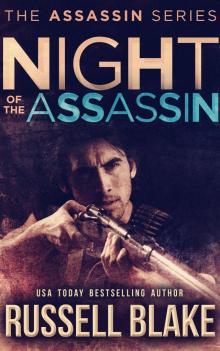 Night of the Assassin
Night of the Assassin Jet
Jet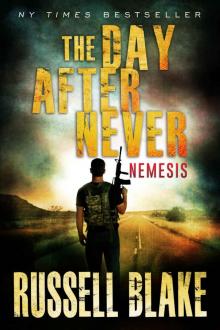 The Day After Never - Nemesis (Post-Apocalyptic Dystopian Thriller - Book 9)
The Day After Never - Nemesis (Post-Apocalyptic Dystopian Thriller - Book 9)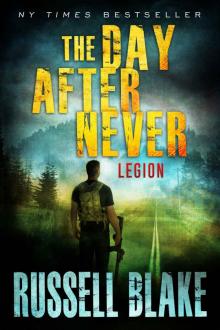 The Day After Never - Legion (Post-Apocalyptic Dystopian Thriller - Book 8)
The Day After Never - Legion (Post-Apocalyptic Dystopian Thriller - Book 8) Upon A Pale Horse (Bio-Thriller)
Upon A Pale Horse (Bio-Thriller)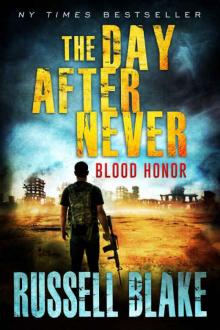 The Day After Never (Book 1): Blood Honor
The Day After Never (Book 1): Blood Honor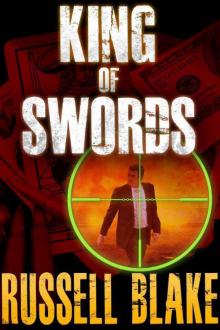 King of Swords a-1
King of Swords a-1 The Day After Never Bundle (First 4 novels)
The Day After Never Bundle (First 4 novels) Emerald Buddha (Drake Ramsey Book 2)
Emerald Buddha (Drake Ramsey Book 2) BLACK to Reality
BLACK to Reality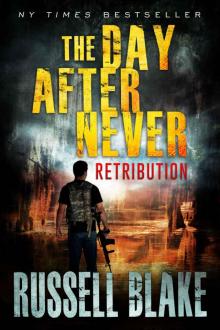 The Day After Never - Retribution (Post-Apocalyptic Dystopian Thriller - Book 4)
The Day After Never - Retribution (Post-Apocalyptic Dystopian Thriller - Book 4) Ramsey's Gold (Drake Ramsey Book 1)
Ramsey's Gold (Drake Ramsey Book 1)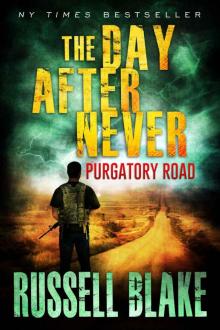 The Day After Never (Book 2): Purgatory Road
The Day After Never (Book 2): Purgatory Road JET - Ops Files
JET - Ops Files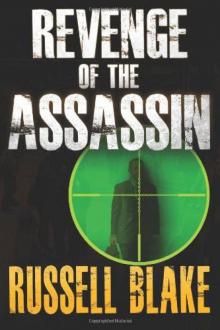 Revenge of the Assassin a-2
Revenge of the Assassin a-2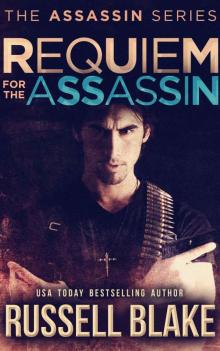 Requiem for the Assassin - 06
Requiem for the Assassin - 06 The Geronimo Breach
The Geronimo Breach Sahara
Sahara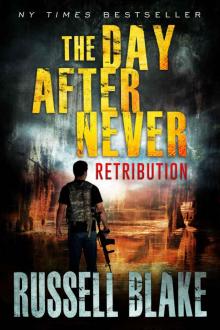 The Day After Never (Book 4): Retribution
The Day After Never (Book 4): Retribution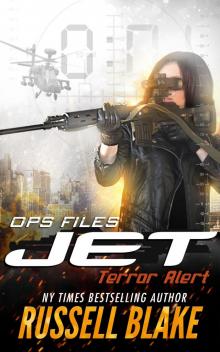 Ops Files II--Terror Alert
Ops Files II--Terror Alert Upon A Pale Horse
Upon A Pale Horse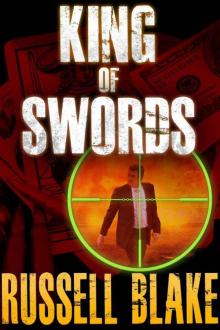 King of Swords (Assassin series #1)
King of Swords (Assassin series #1) A Girl Apart
A Girl Apart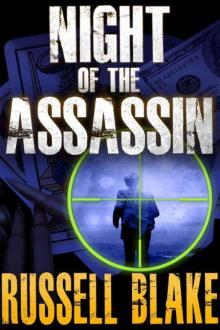 Night of the Assassin: Assassin Series Prequel
Night of the Assassin: Assassin Series Prequel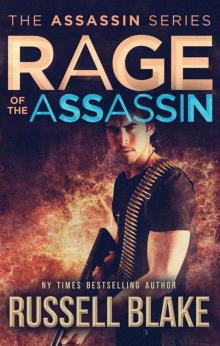 Rage Of The Assassin
Rage Of The Assassin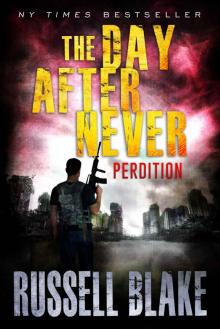 The Day After Never - Perdition (Book 6)
The Day After Never - Perdition (Book 6) The Voynich Cypher
The Voynich Cypher JET, no. 3
JET, no. 3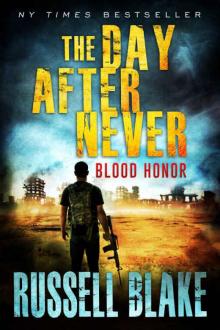 The Day After Never - Blood Honor (Post-Apocalyptic Dystopian Thriller)
The Day After Never - Blood Honor (Post-Apocalyptic Dystopian Thriller) 9 More Killer Thrillers
9 More Killer Thrillers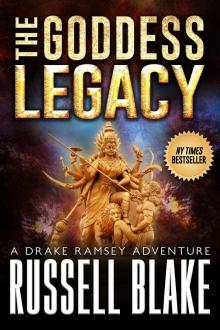 The Goddess Legacy
The Goddess Legacy Fatal Exchange
Fatal Exchange Fatal Exchange (Fatal Series Book 1)
Fatal Exchange (Fatal Series Book 1) JET - Forsaken
JET - Forsaken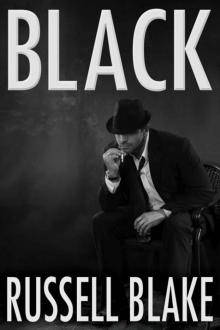 Black
Black Jet j-1
Jet j-1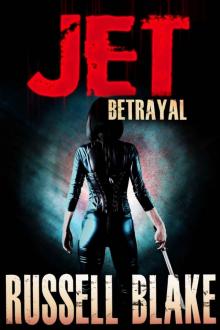 Betrayal j-2
Betrayal j-2 Jet 04: Reckoning
Jet 04: Reckoning Jet 03: Vengeance
Jet 03: Vengeance Fatal Deception
Fatal Deception A Girl Betrayed (A Leah Mason suspense thriller Book 2)
A Girl Betrayed (A Leah Mason suspense thriller Book 2)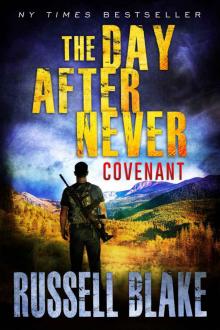 The Day After Never - Covenant (Post-Apocalyptic Dystopian Thriller - Book 3)
The Day After Never - Covenant (Post-Apocalyptic Dystopian Thriller - Book 3)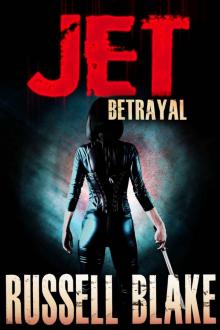 JET II - Betrayal (JET #2)
JET II - Betrayal (JET #2)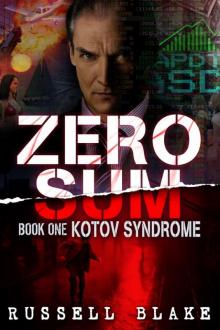 Zero Sum, Book One, Kotov Syndrome
Zero Sum, Book One, Kotov Syndrome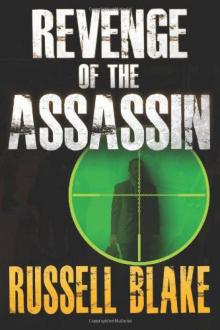 Revenge of the Assassin
Revenge of the Assassin The Day After Never - Insurrection (Book 5)
The Day After Never - Insurrection (Book 5)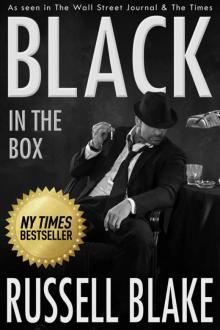 BLACK in the Box
BLACK in the Box Zero Sum
Zero Sum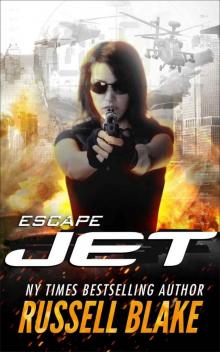 JET - Escape: (Volume 9)
JET - Escape: (Volume 9) The Manuscript
The Manuscript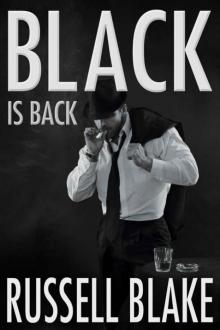 BLACK Is Back
BLACK Is Back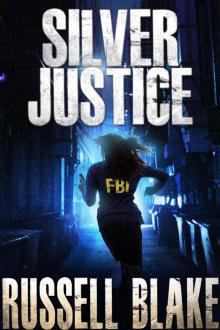 Silver Justice
Silver Justice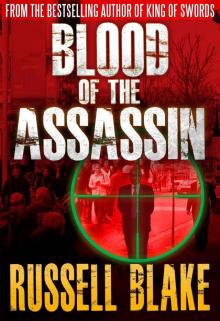 Blood of the Assassin
Blood of the Assassin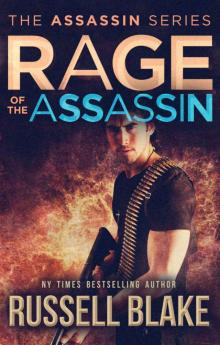 Rage of the Assassin: (Assassin Series #6)
Rage of the Assassin: (Assassin Series #6)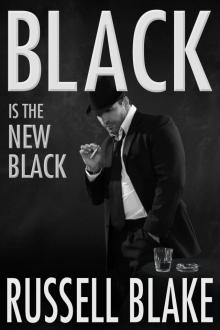 BLACK Is the New Black
BLACK Is the New Black